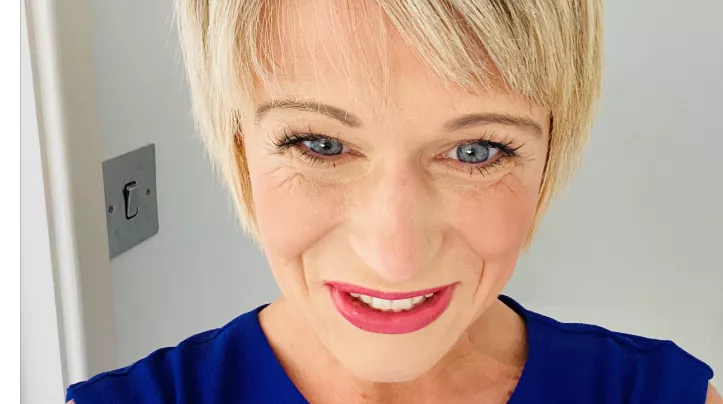
Aisling Pigott is a paediatric diabetes dietitian at Cardiff and Vale University Health Board, and an RCBCWales-funded PhD student. Here, she tells us about her work within diabetes care and how she supports children and young people and their families.
When I started working in paediatrics a few years after qualifying in 2010, I knew I’d found my area of speciality. I was lucky to spend some time in acute and public health settings before I well and truly landed on my feet with the Children’s Hospital for Wales (CHfW) paediatric diabetes team.
The diabetes team at the CHfW is the best team in the world. The compassion and respect my colleagues have for the children and young
I love working in paediatric diabetes care. I enjoy supporting children, young people and their families to make nutritious choices, manage meal times, understand the impact of food on blood glucose and maximise their diabetes management using insulin timing, technology and dietary strategies.
No two days are the same
I work condensed hours in the paediatric diabetes team embedded within a multidisciplinary team. This gives me the flexibility to offer education sessions or catch ups after school, which work much better for young people and working families.
No two days are the same in paediatric diabetes services. Our days usually consist of a clinic, as well as delivering SEREN (Structured Education Reassuring Empowering Nurturing) structured education programme at diagnosis or supporting families to interpret diabetes technology.
Diabetes is a tricky service to plan, as we often get spates of young people diagnosed at once. We’ve been especially busy these last few years, with more children and young people being diagnosed with all types of diabetes.
The team is keen to embed peer support within our service and hold an annual ‘moving to high school’ day. These are fantastic opportunities for children and young people to meet one another and feel connected.
Challenges with food
Although I loved paediatric diabetes, I was struck by the number of young people in our service who struggle with difficult relationships with food. I often wondered about the impact of carbohydrate counting and emerging diabetes technologies on children and young people.
I was fortunate to be awarded funding for a ‘First into Research’ project to explore perceptions of eating disorders among clinicians in diabetes teams in Wales. This led to my PhD funding which explores the contributions to disordered eating in type 1 diabetes. I’m so honoured to be able to spend time learning from the real experts: people with lived experience.
My research project PreventT1DE is a two-part project. I am currently working on the first stage. The aim of this is to find out more about what contributes to the development of eating disorders and disordered eating in type 1 diabetes.
I am interviewing people with a lived experience. I’m almost half way through recruiting and much of my days is spent arranging interviews, interviewing, transcribing interviews and hunched over my laptop.
I’m learning so much from these amazing participants about how we interact as healthcare professionals, as well as useful insights into the burden and distress of diabetes in childhood. For the next stage of my project, I’m hoping to use this information to develop an intervention that can be embedded within our structured education programme in Wales.
Children and young people with diabetes are more likely to have complicated relationships with food due to the way that it is currently managed.
We know that some children in a bigger body are at higher risk of developing these complex relationships, but this is not well recognised among healthcare professionals. We need to understand more about how these complex relationships with food develop and try and build resilience within our population of young people. As healthcare professionals, we have a lot to learn from the real experts in diabetes.
I love working in paediatric diabetes care. I enjoy supporting children, young people and their families to make nutritious choices and to understand the impact of food on blood glucose.
